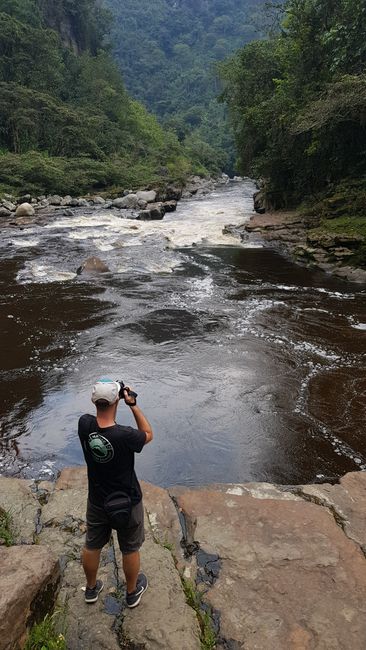In the tobacco fields of the world - pure nature in Viñales!
Pubblicato: 07.02.2019
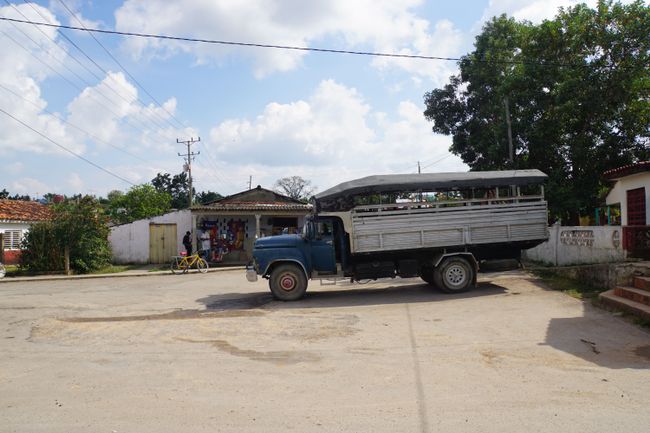
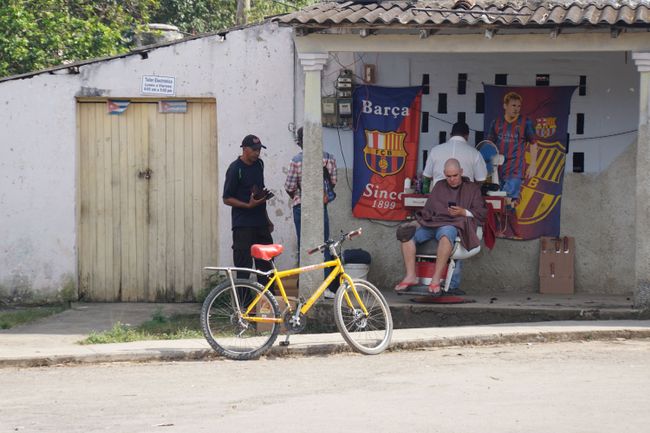
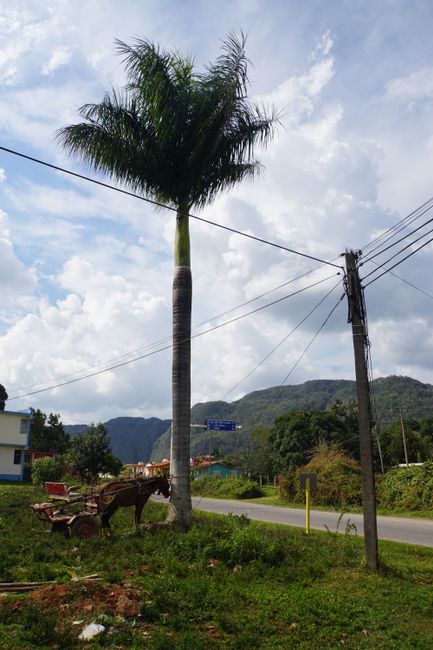
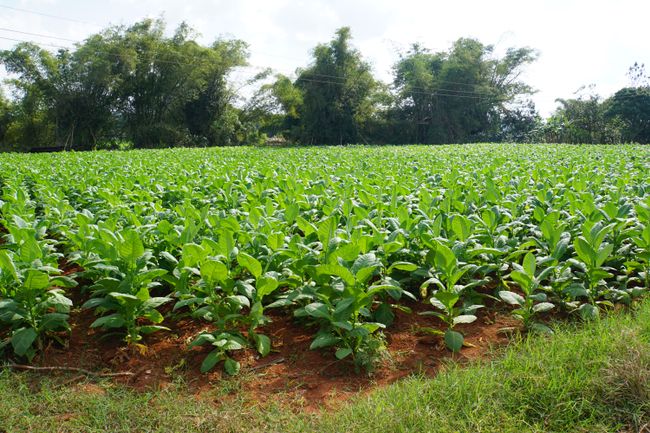
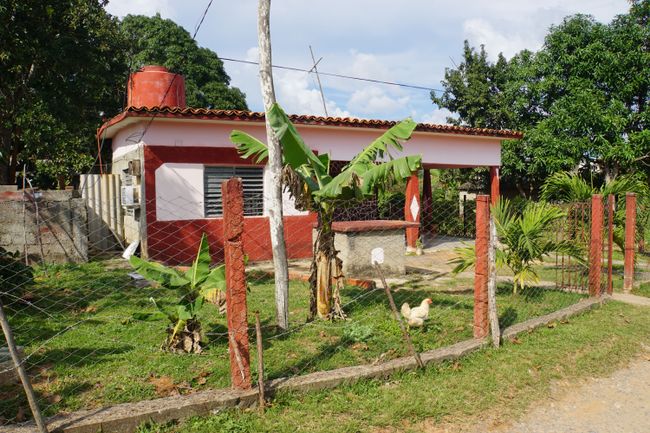
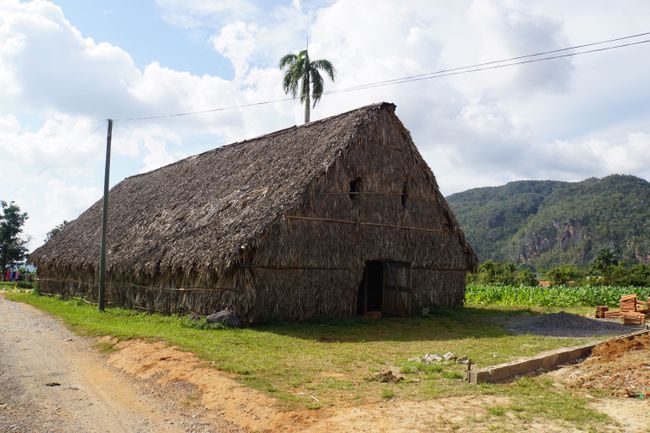
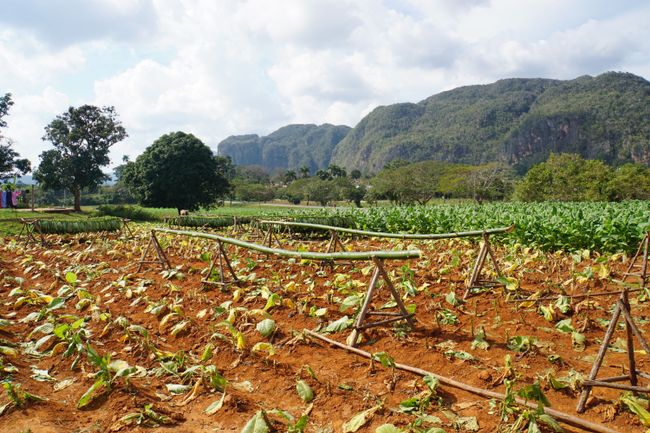
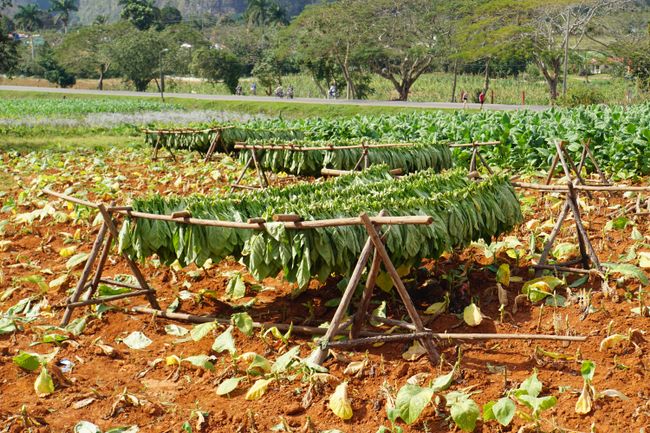
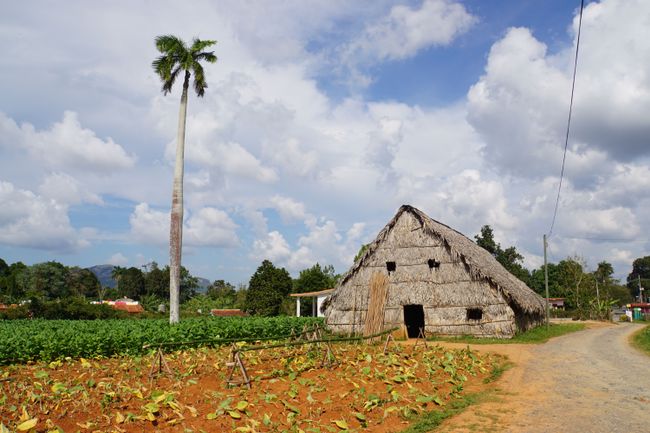
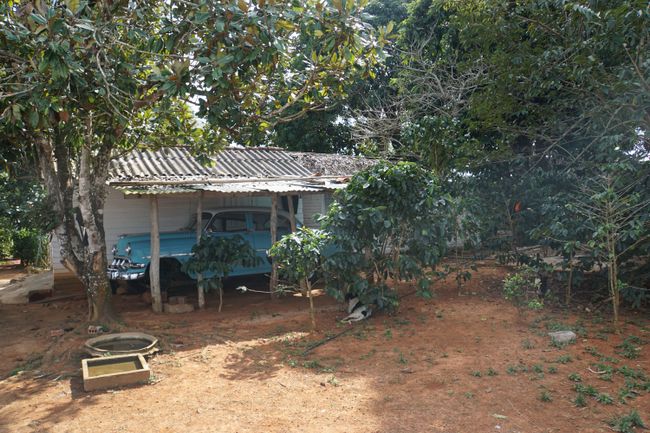
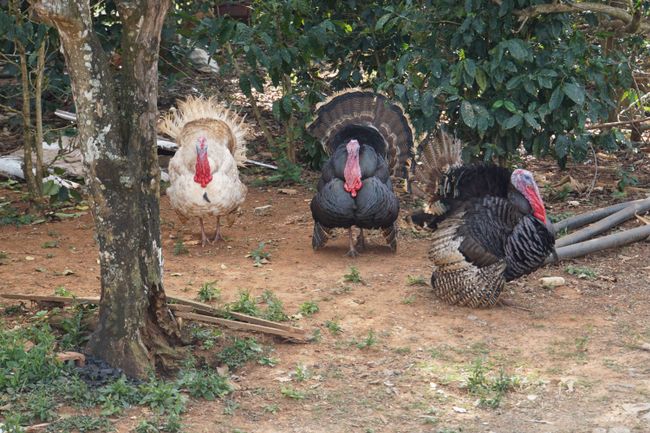
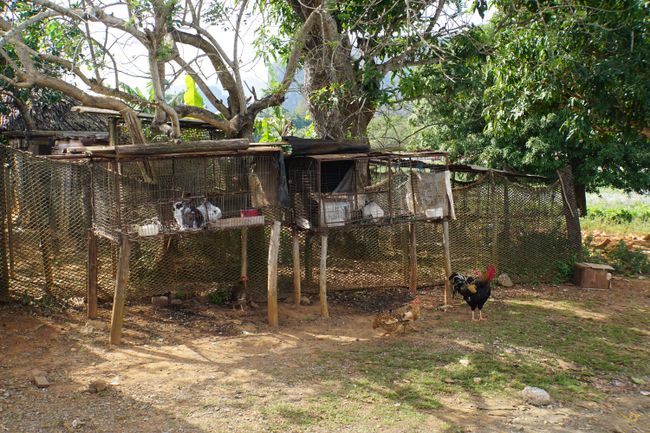
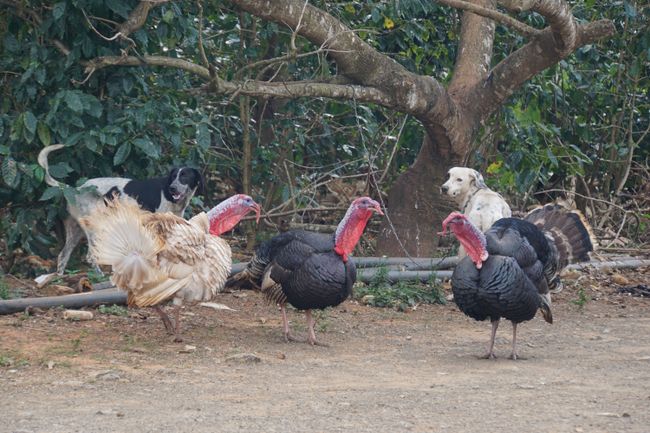
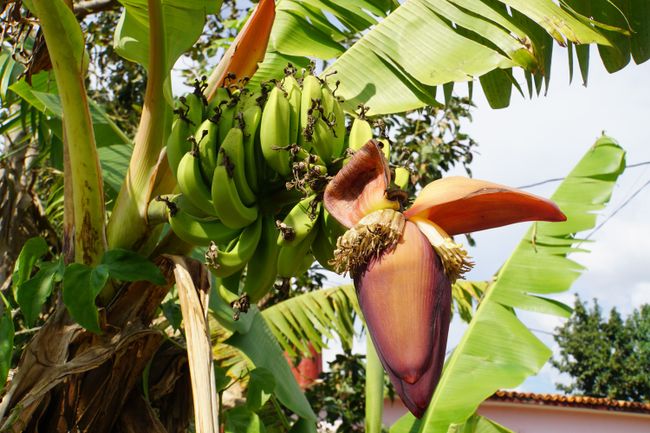
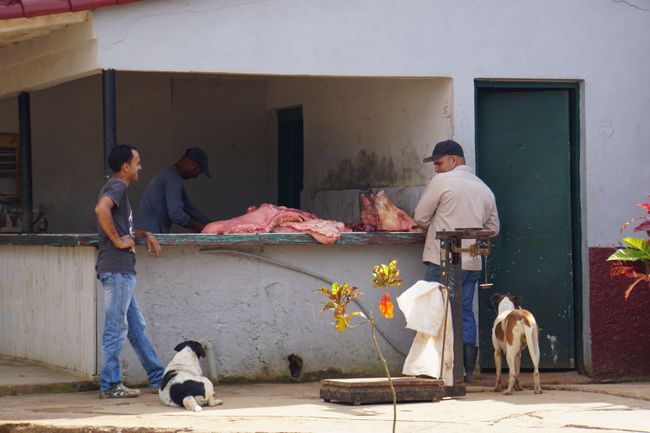
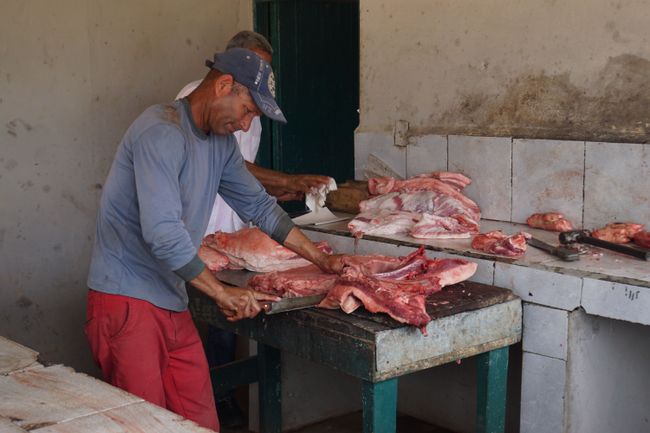
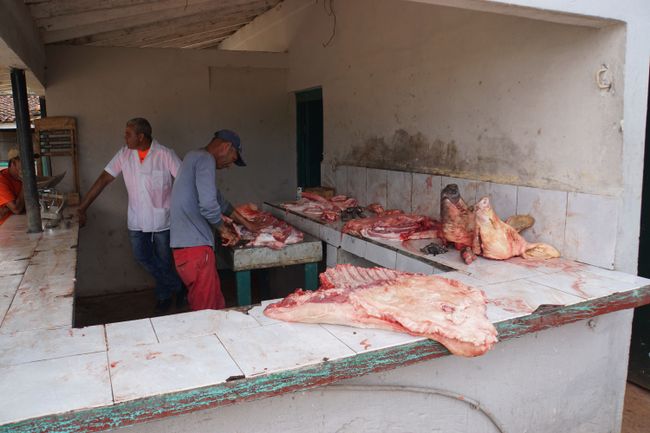
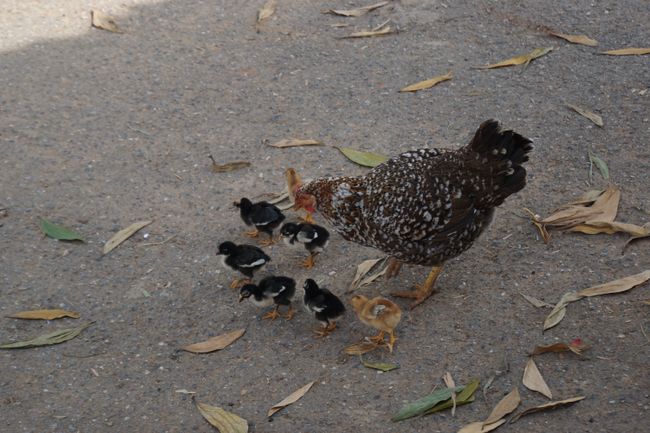
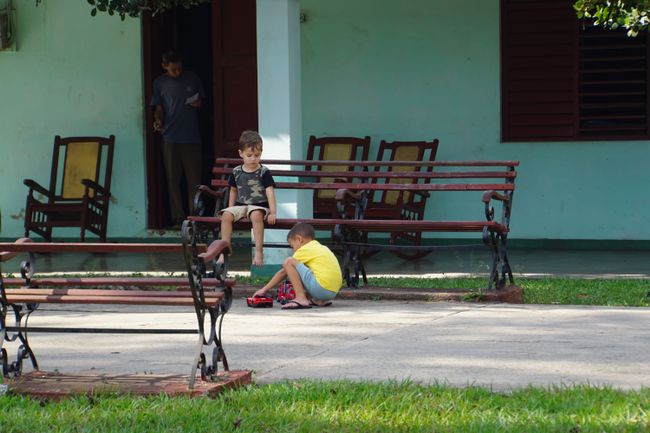
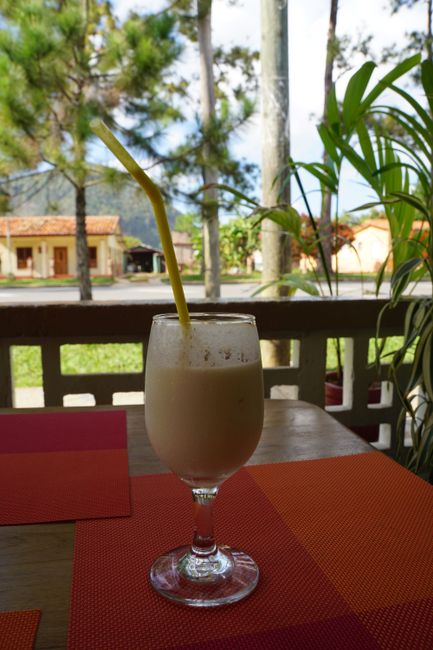
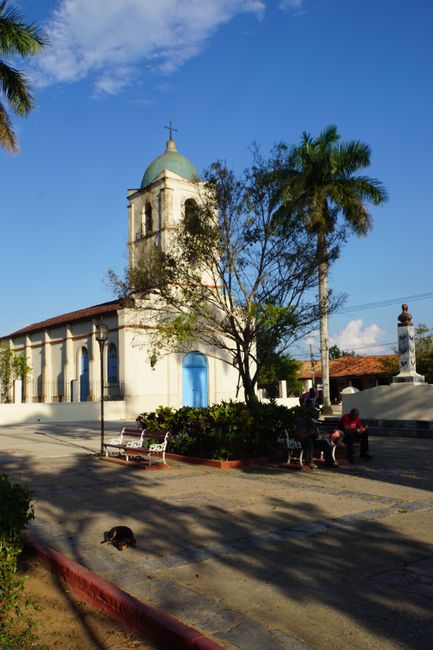
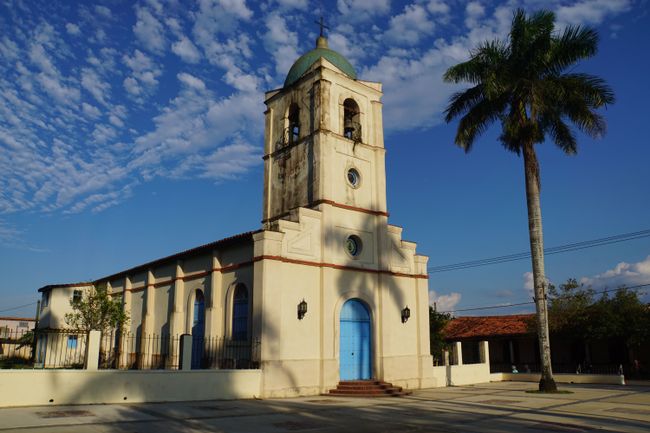
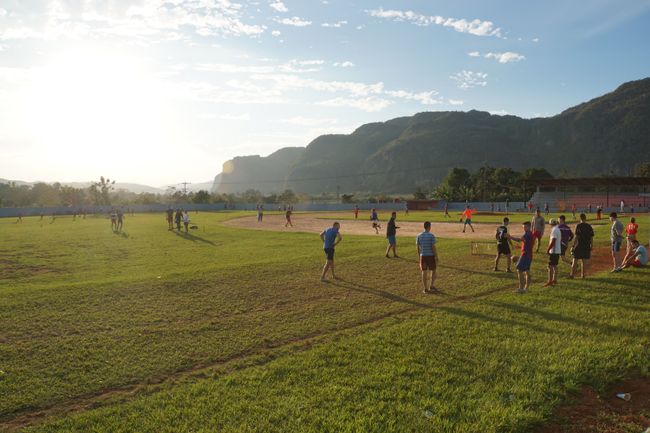
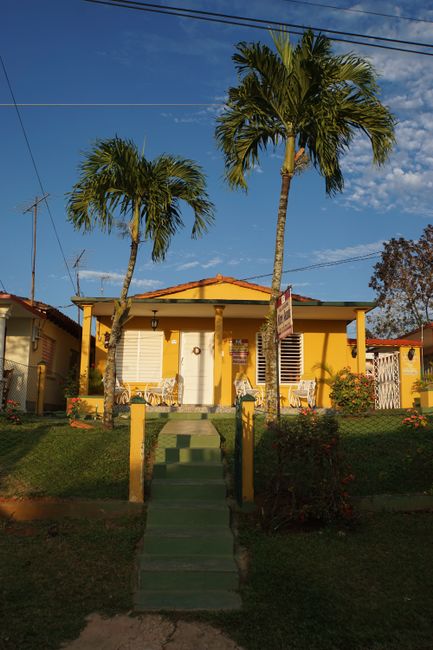
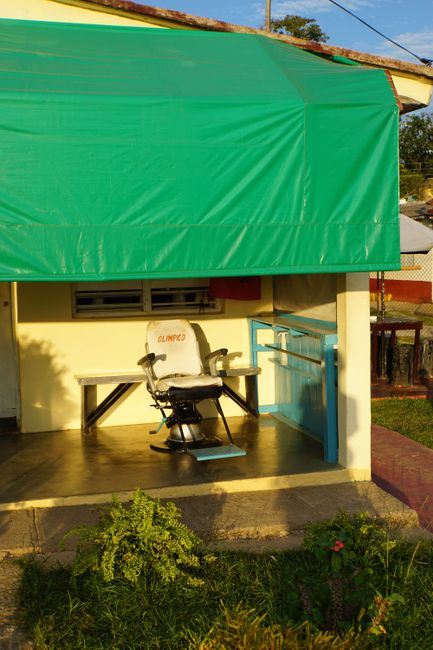
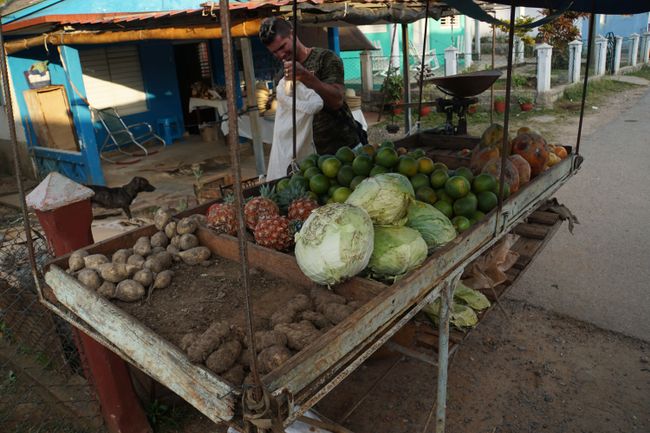
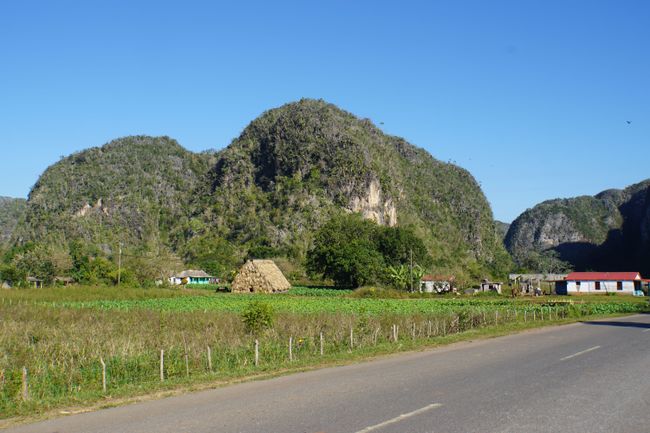
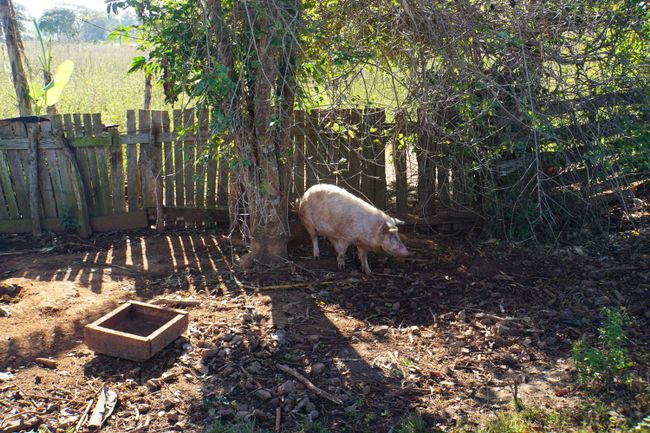
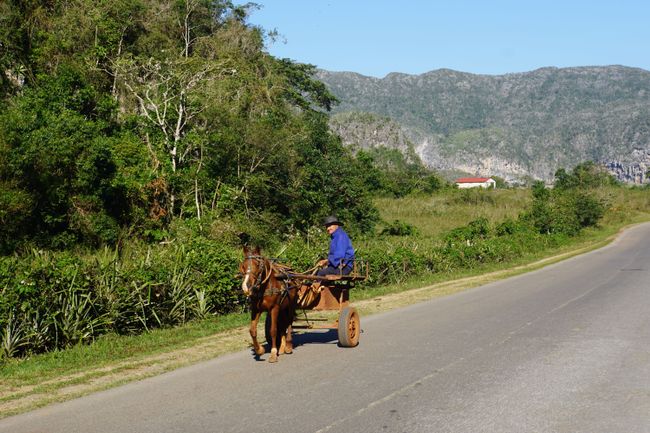
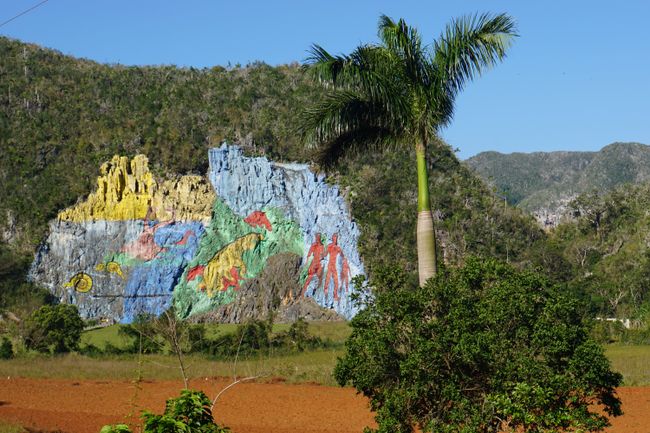
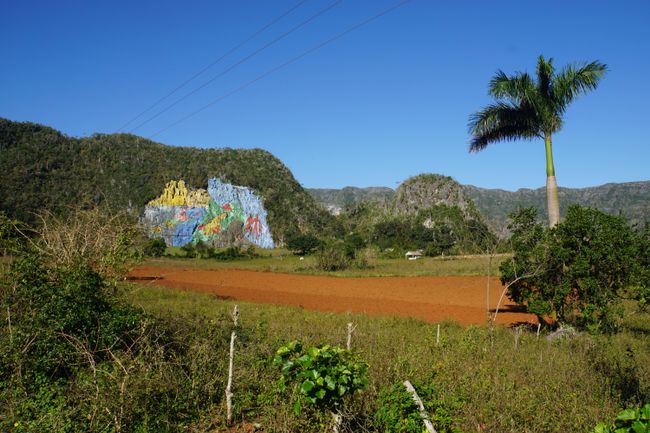
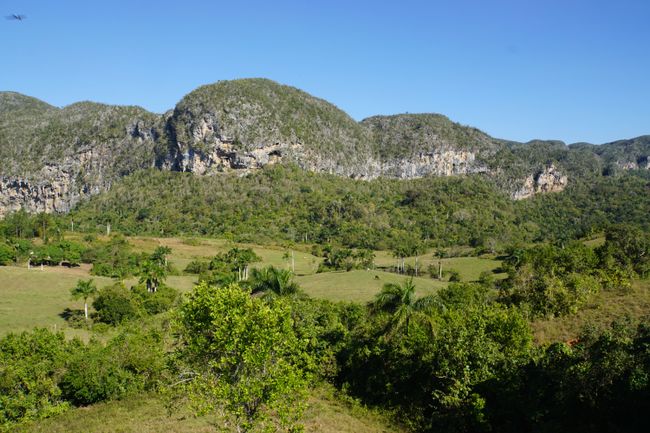
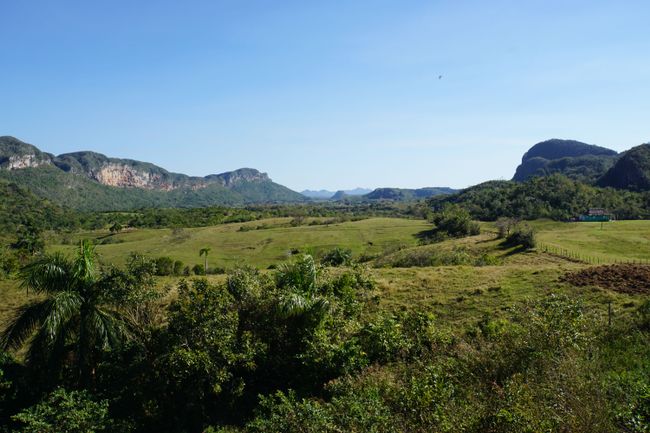
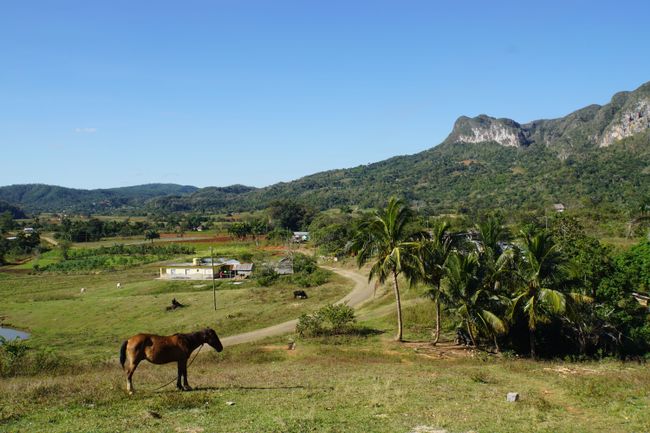
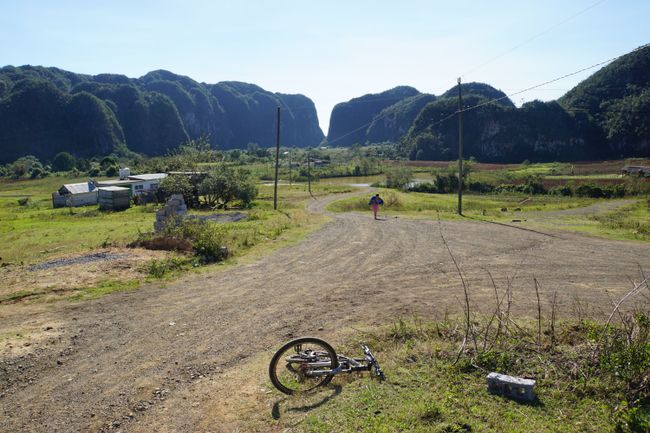
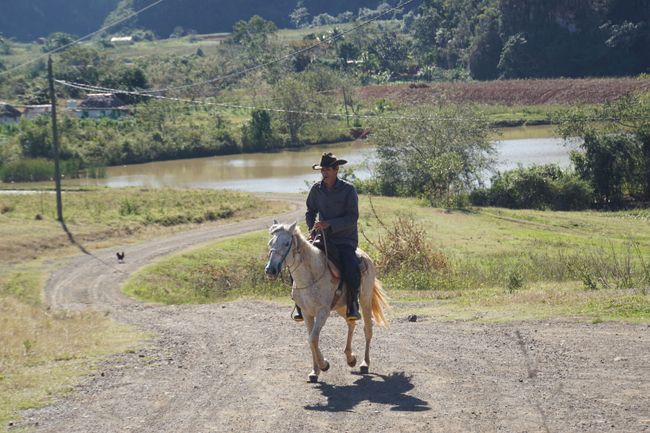
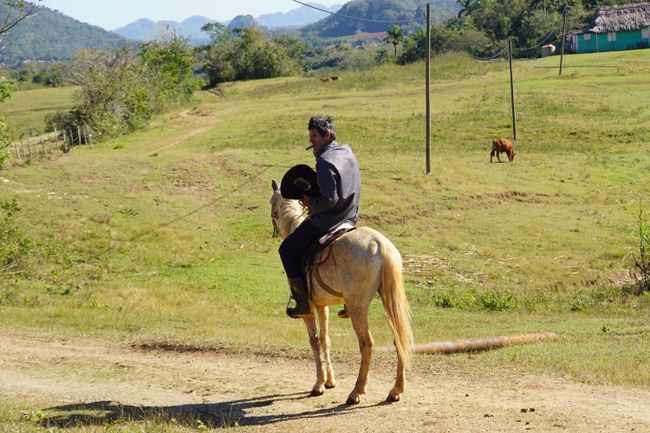
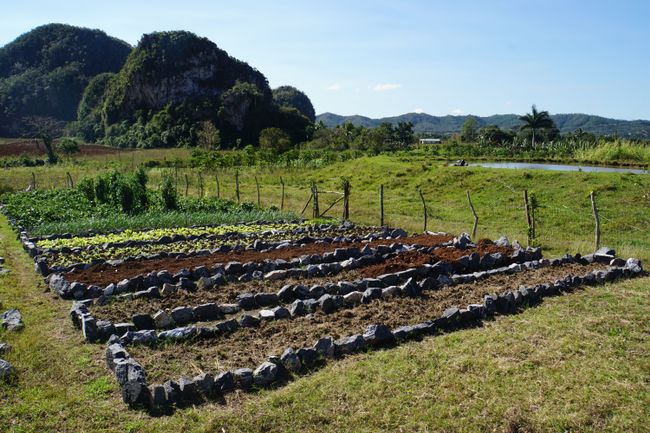
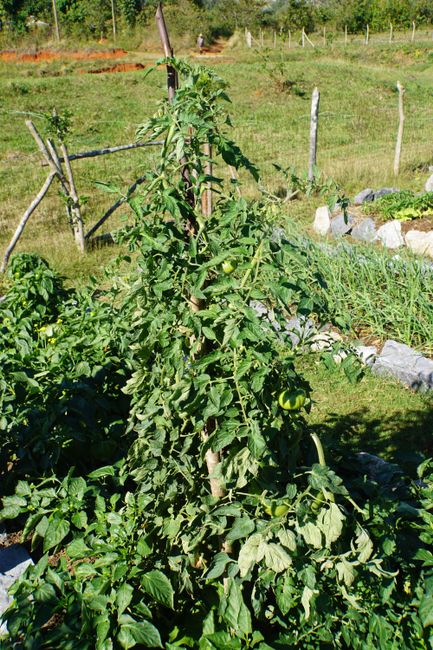
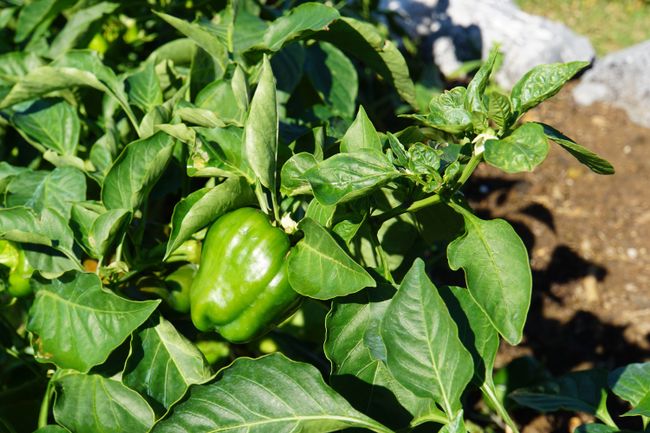
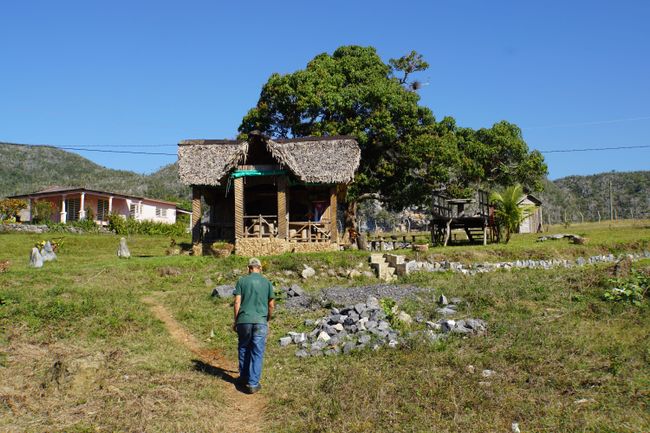
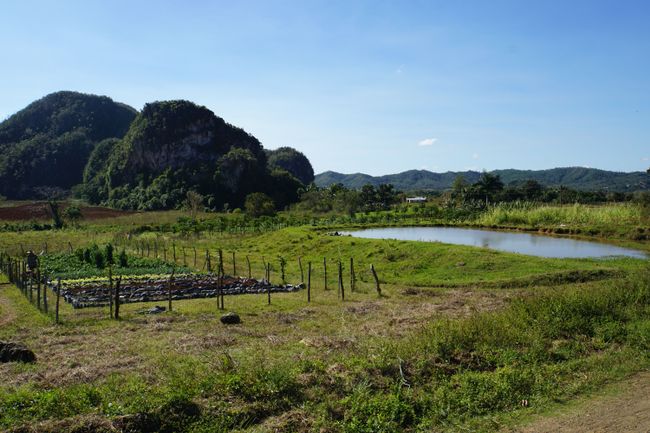
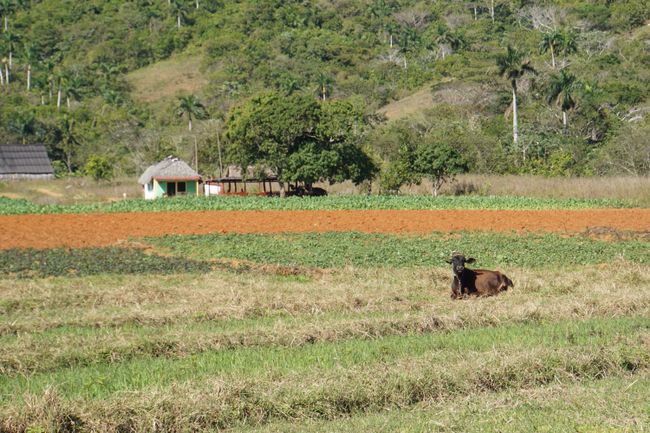
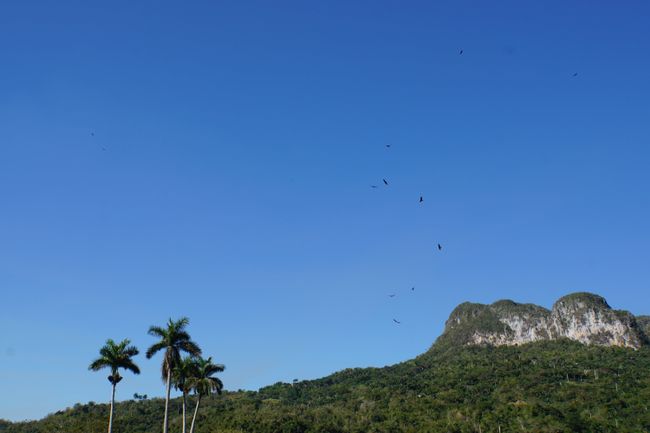
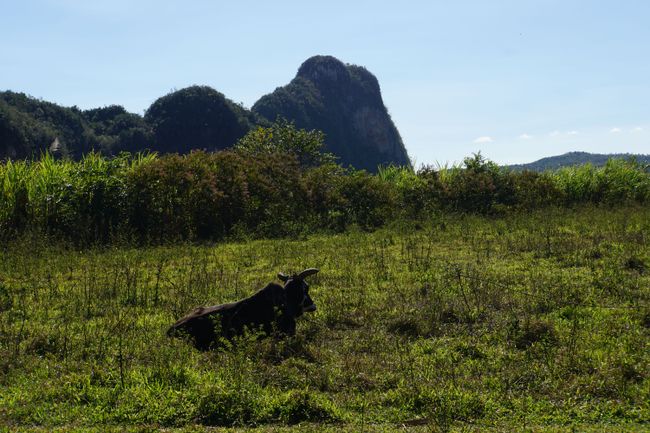
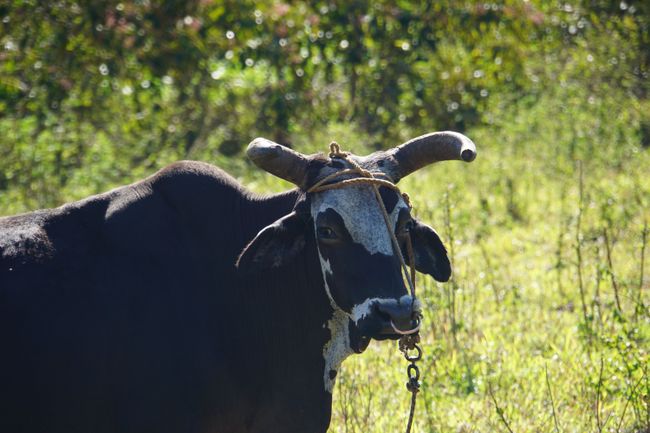
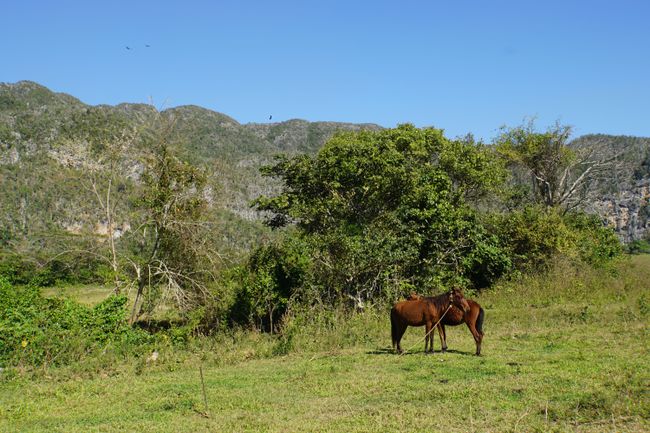
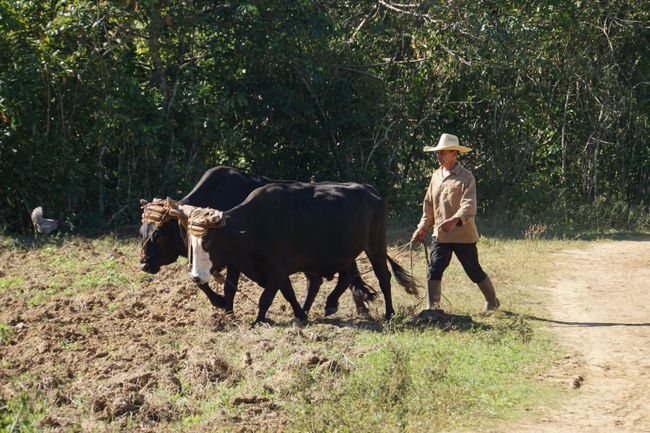
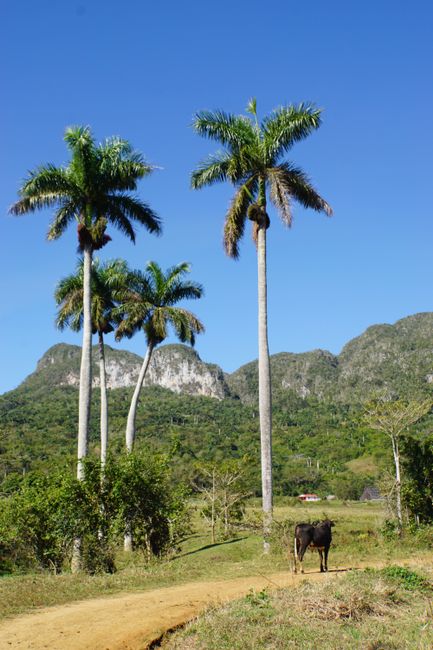
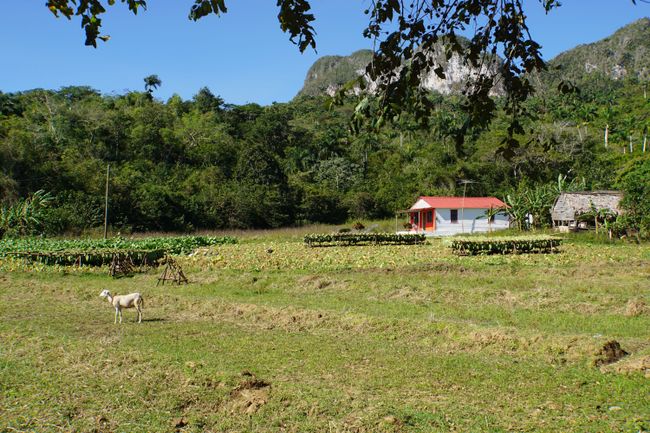
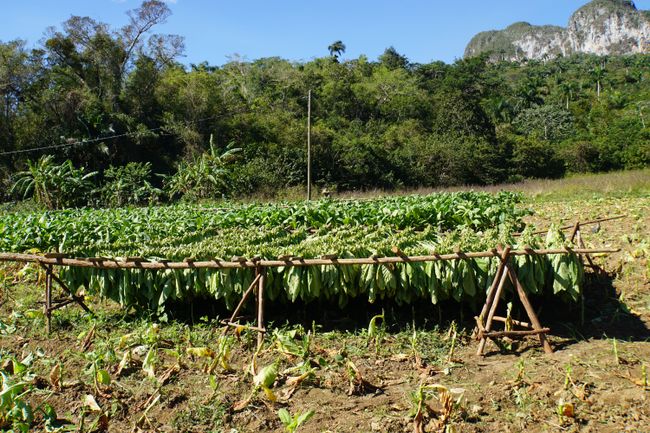
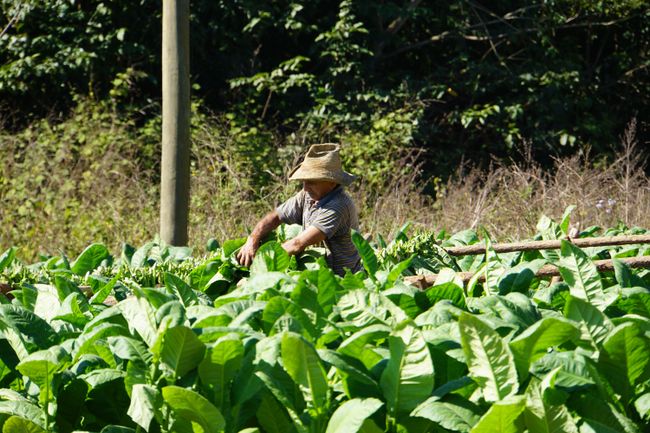
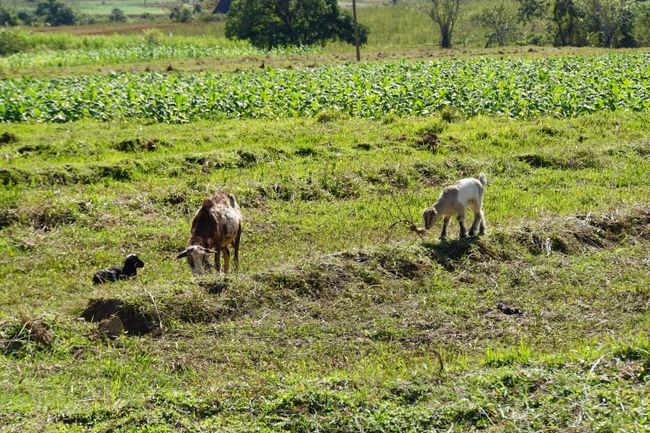
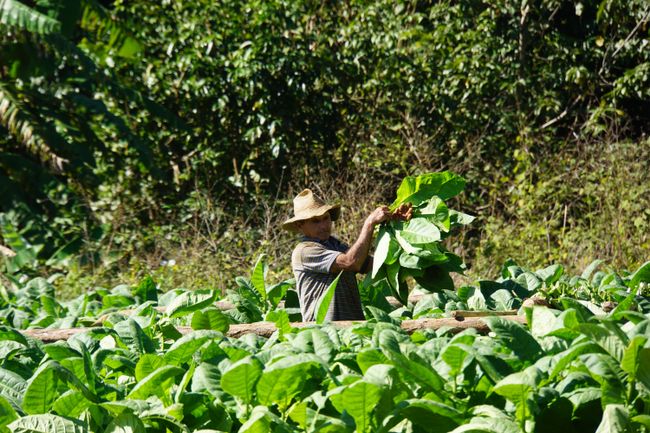
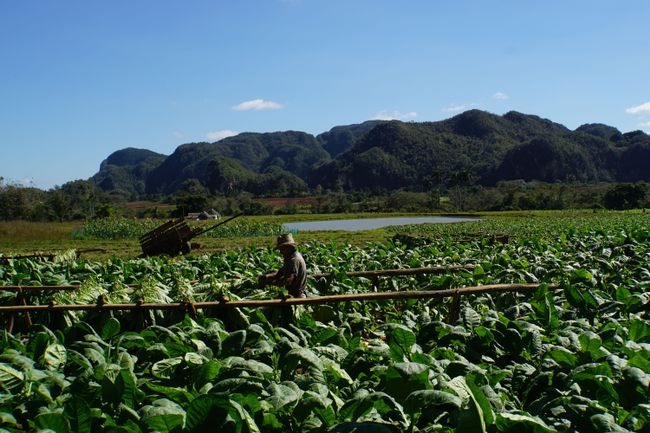
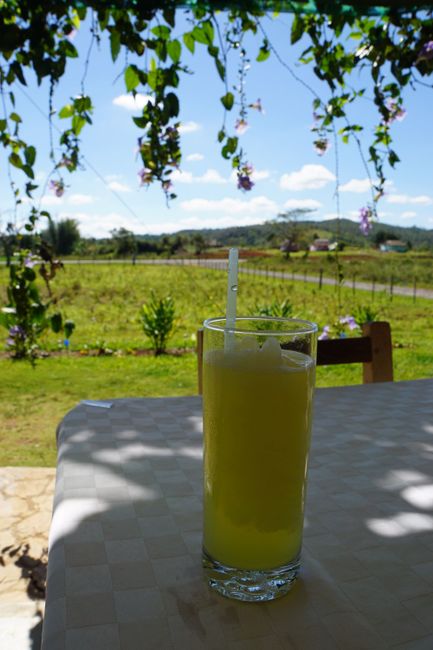
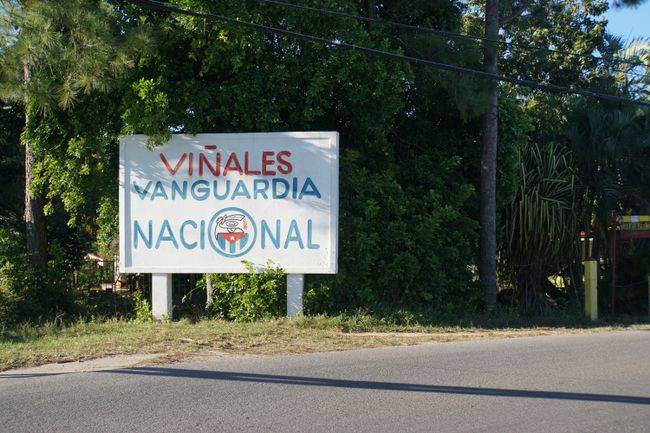
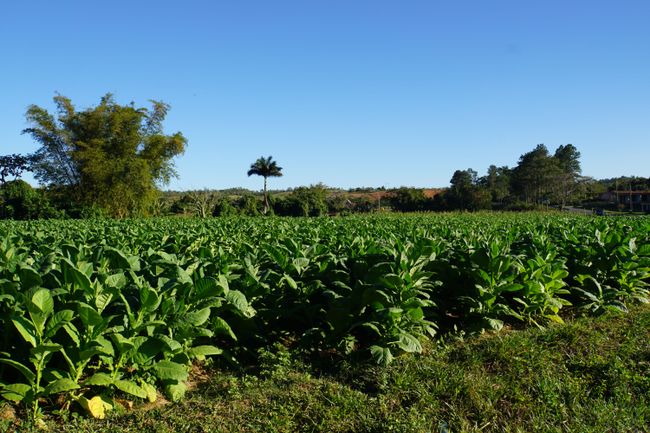
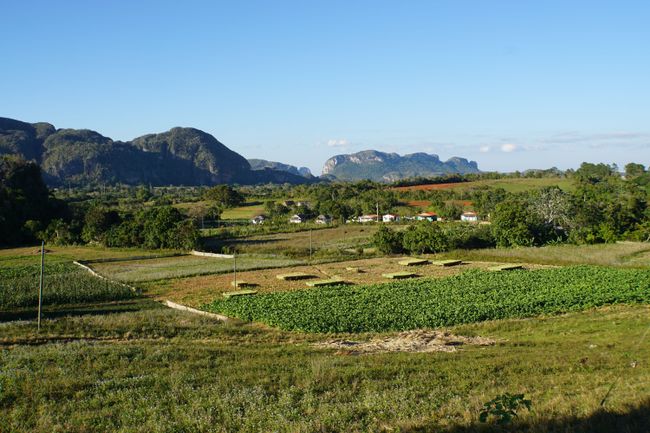
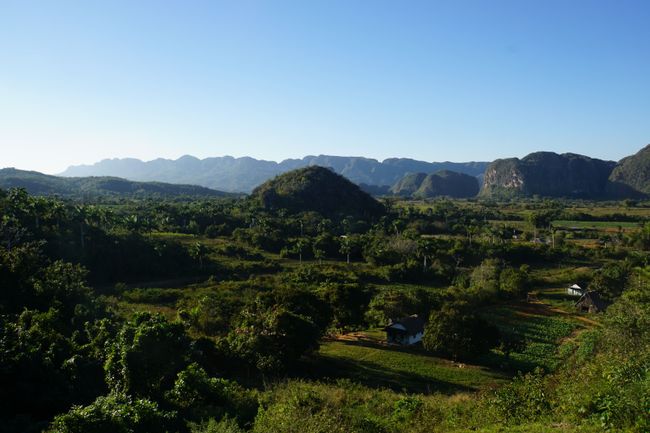
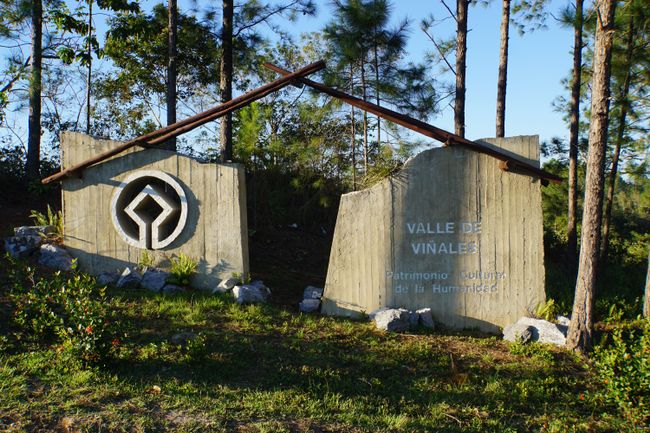
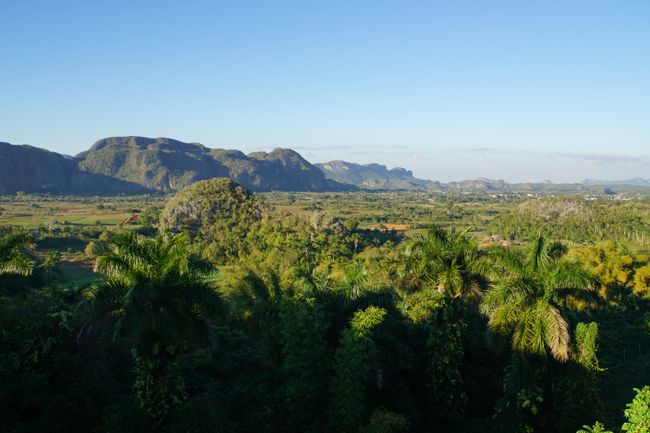
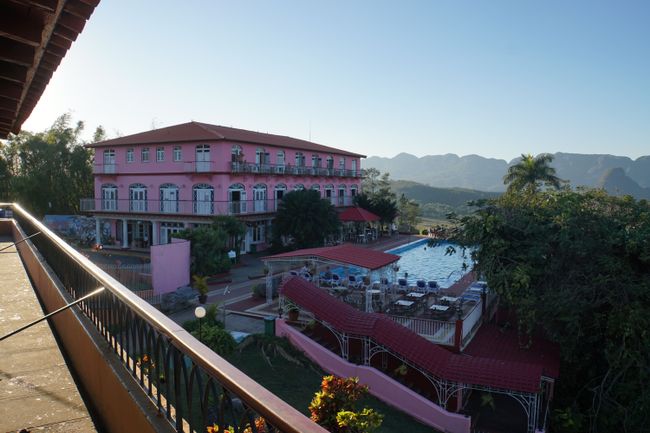
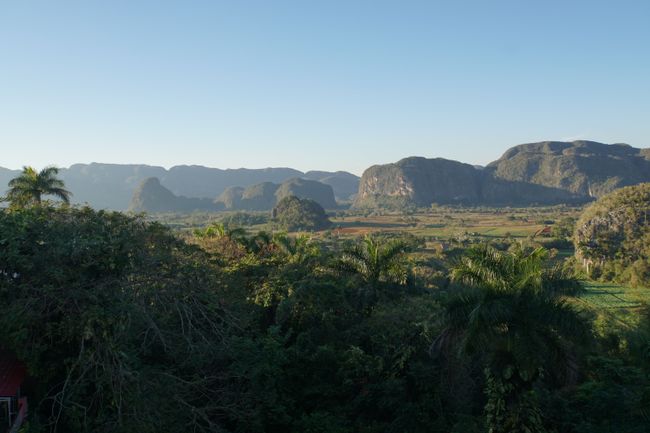
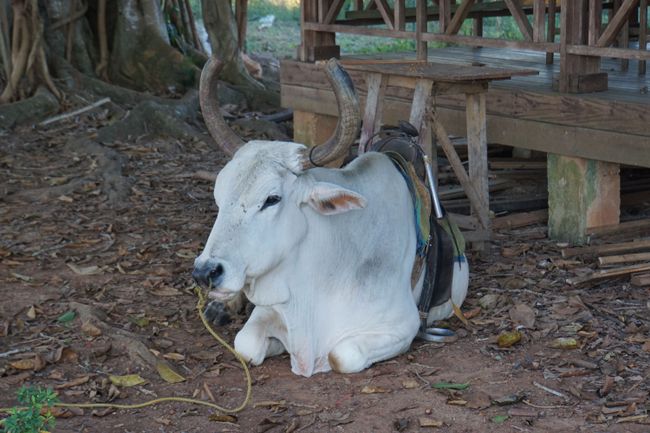
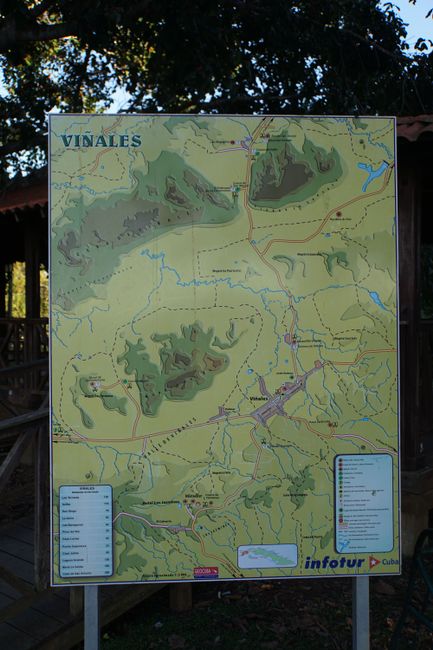
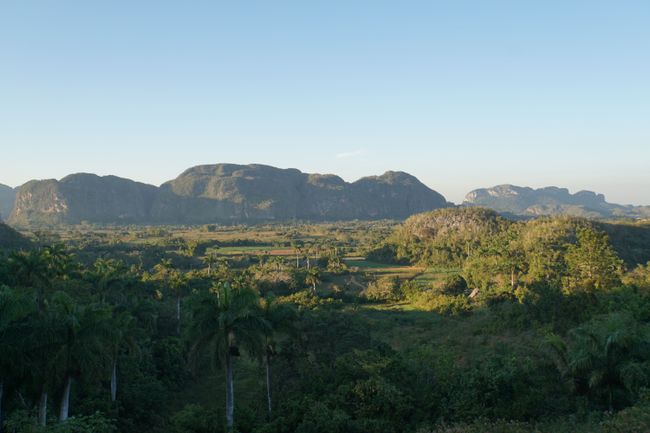
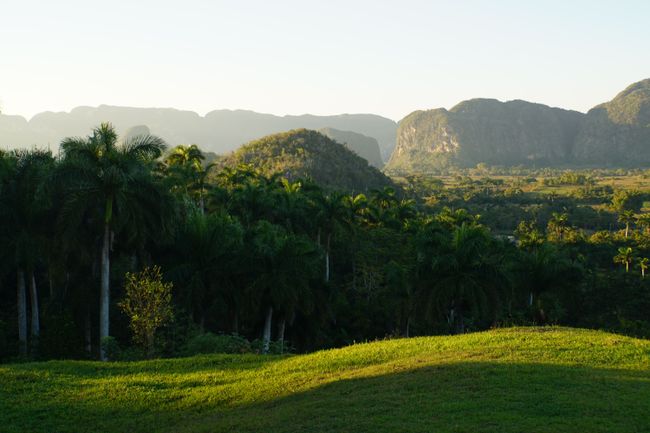
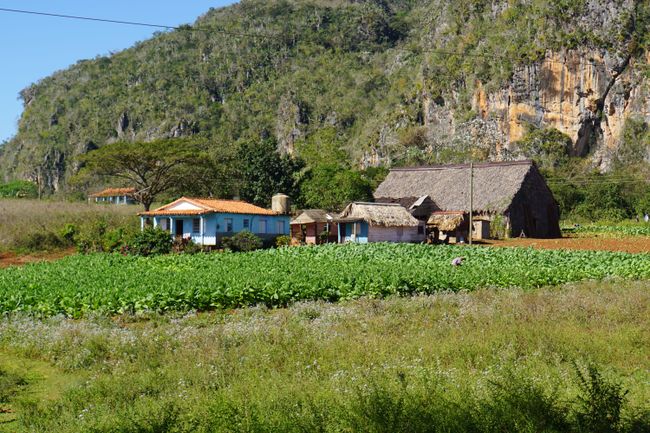
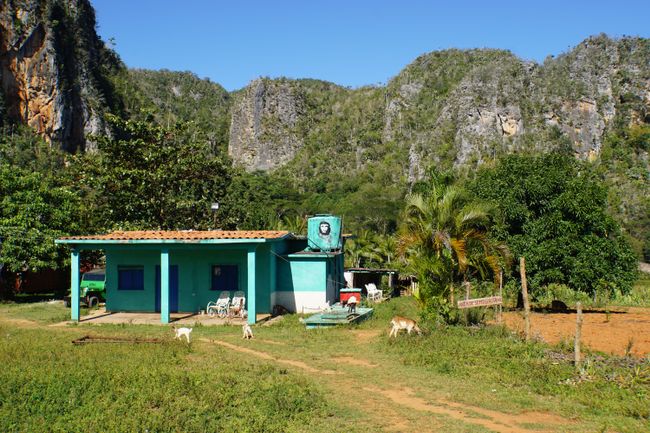
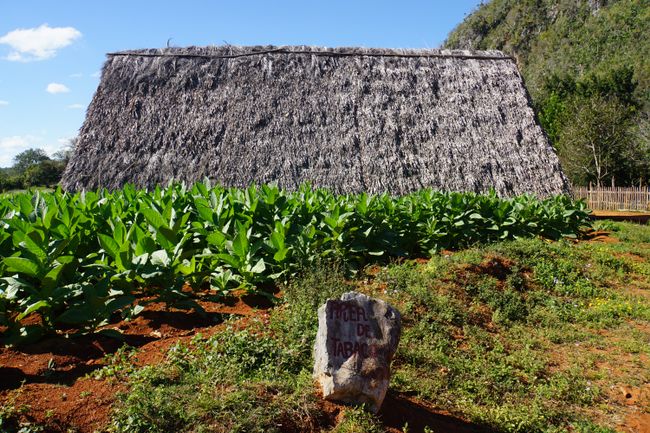
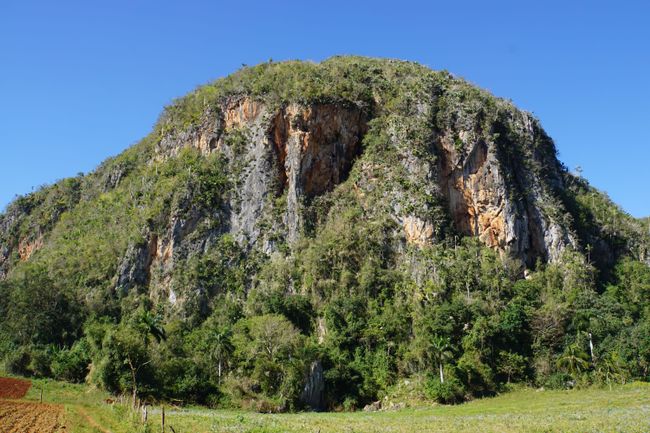
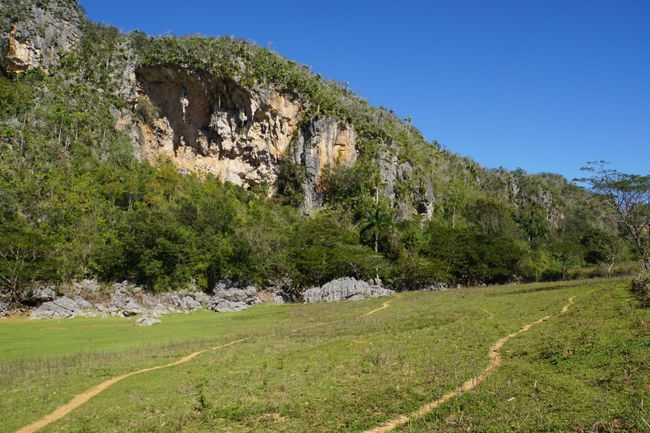
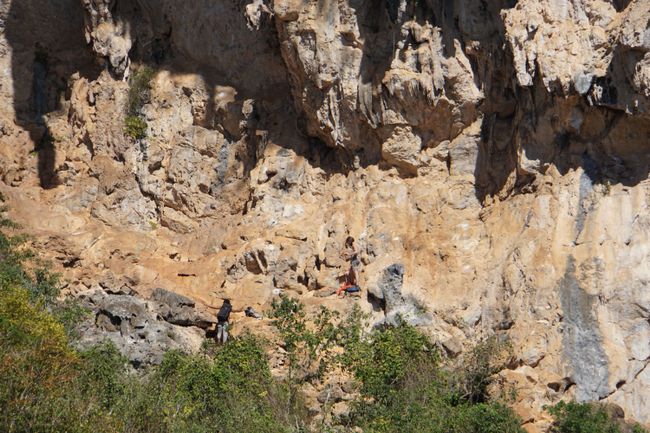
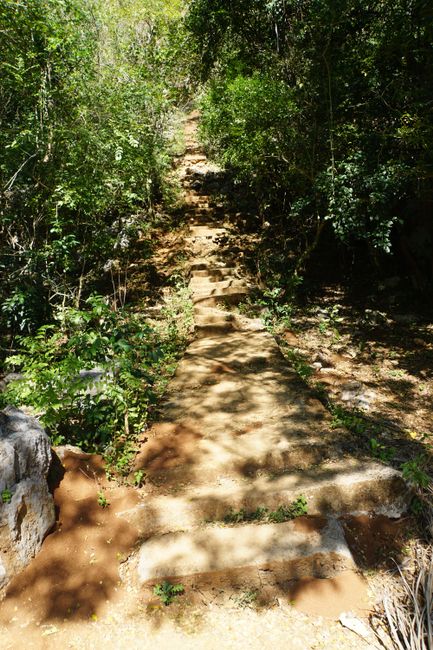
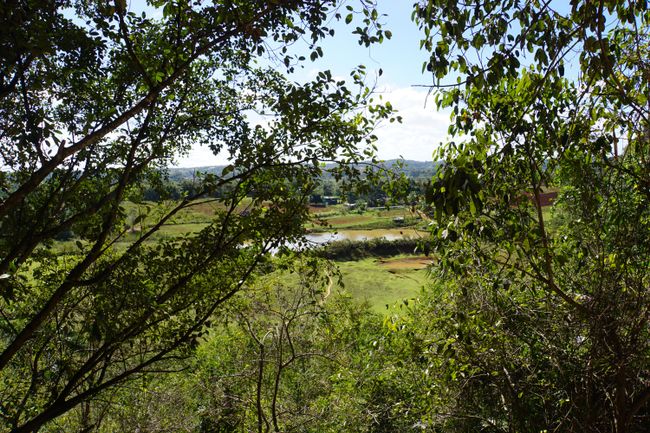
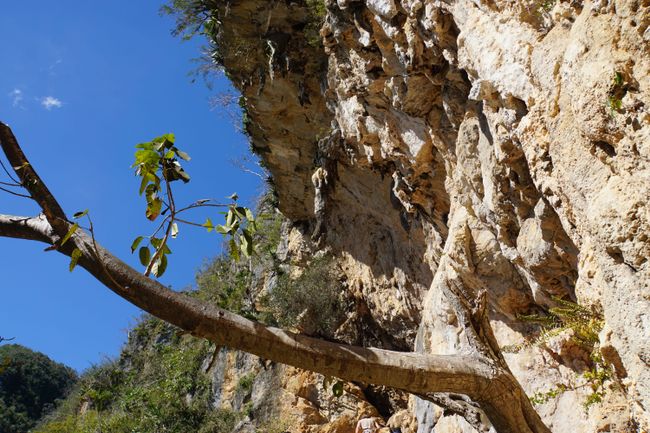
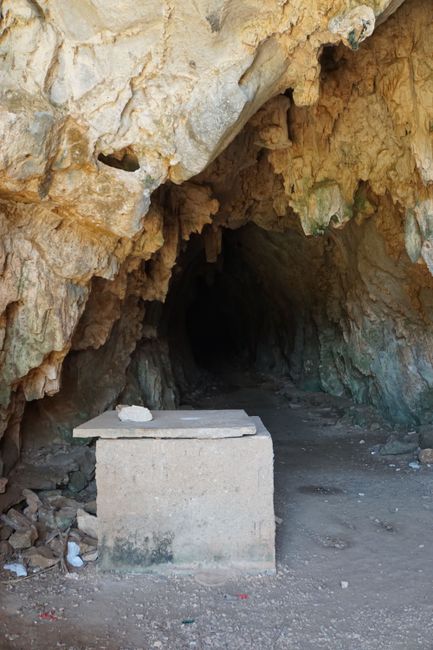
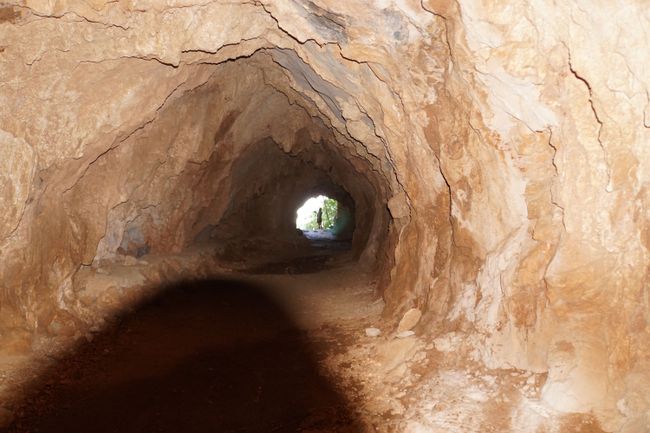
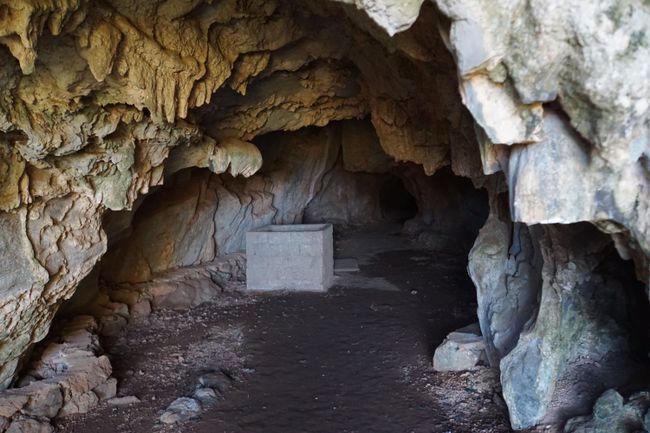
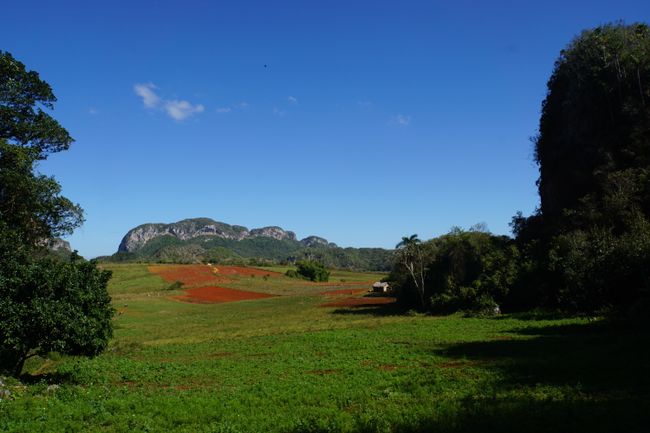
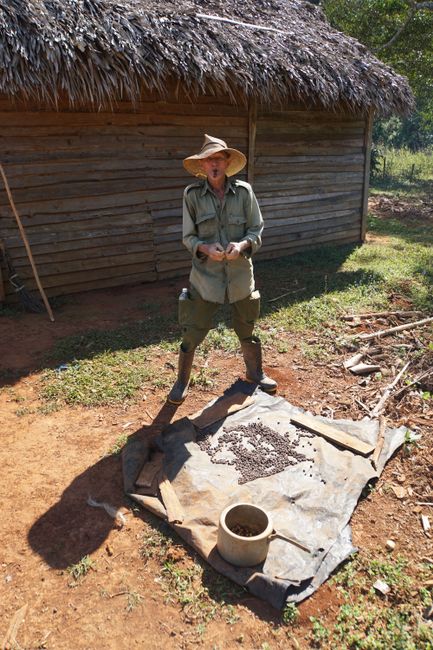
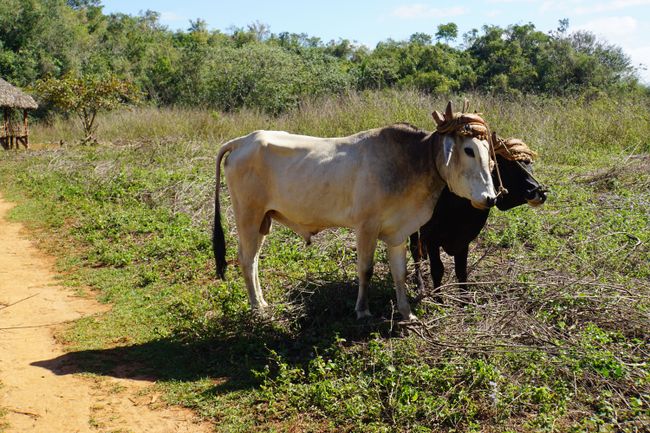
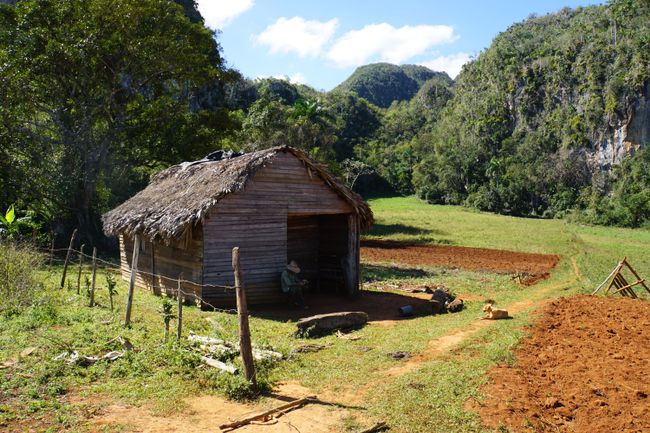
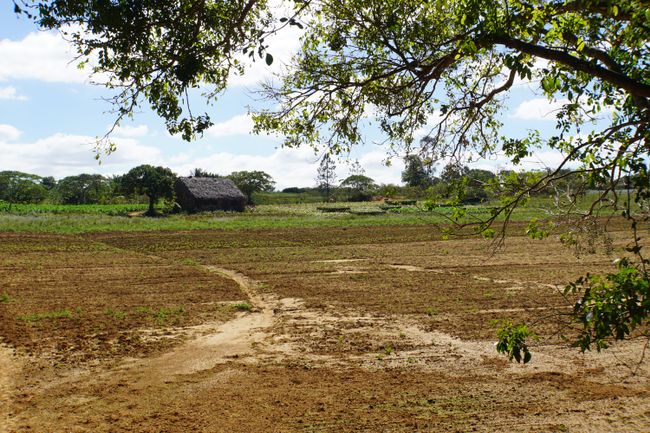
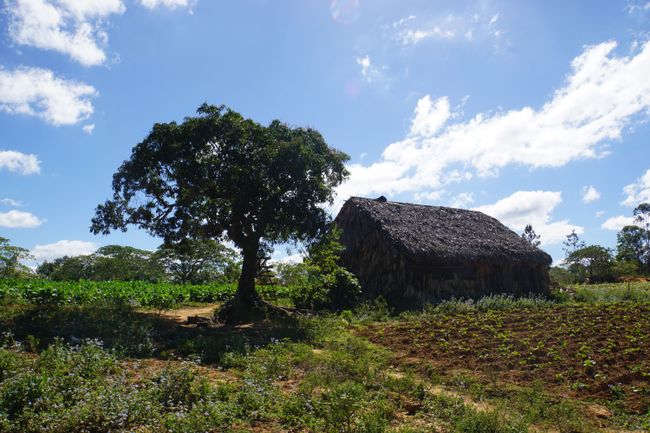
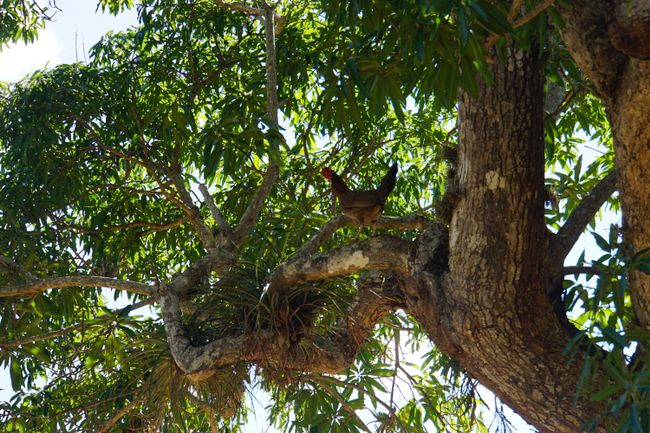
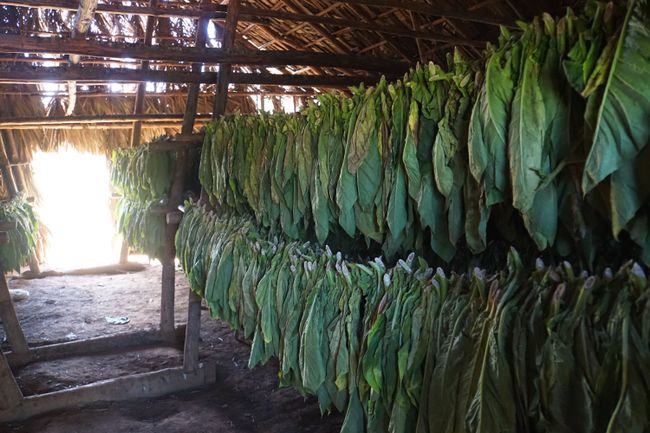
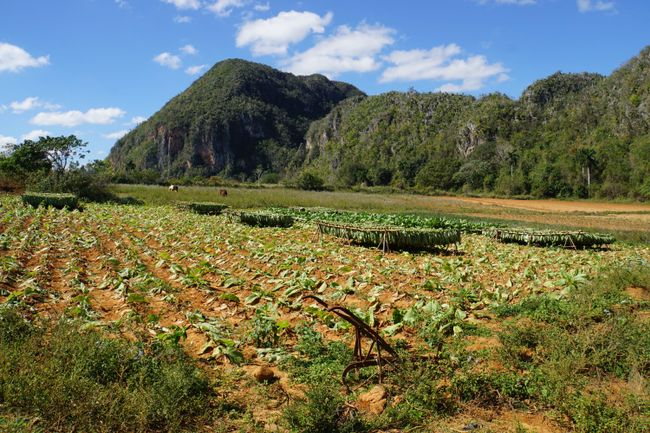
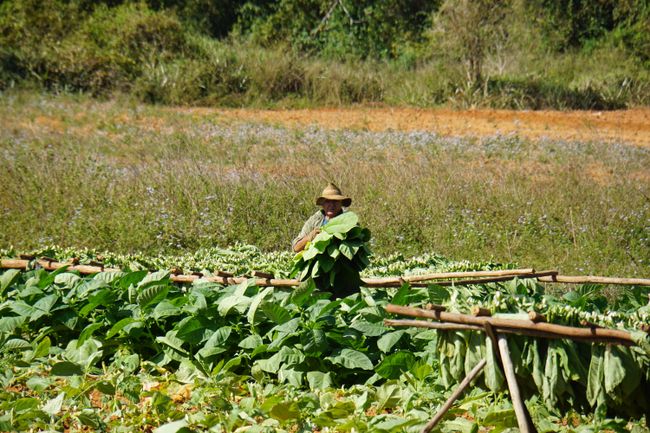
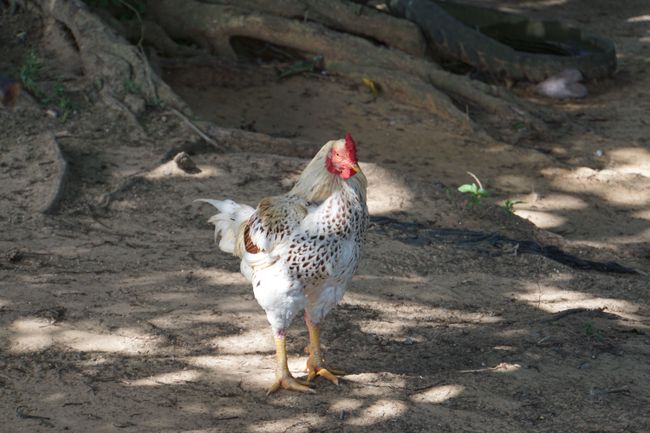
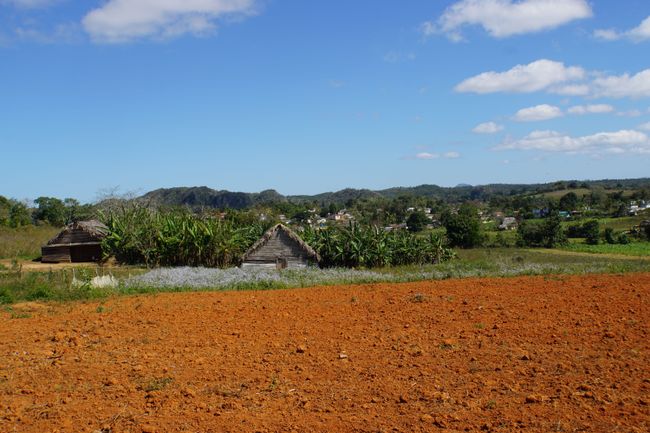
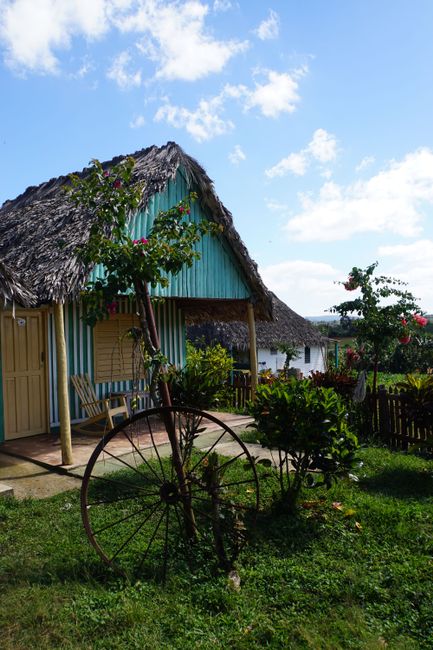
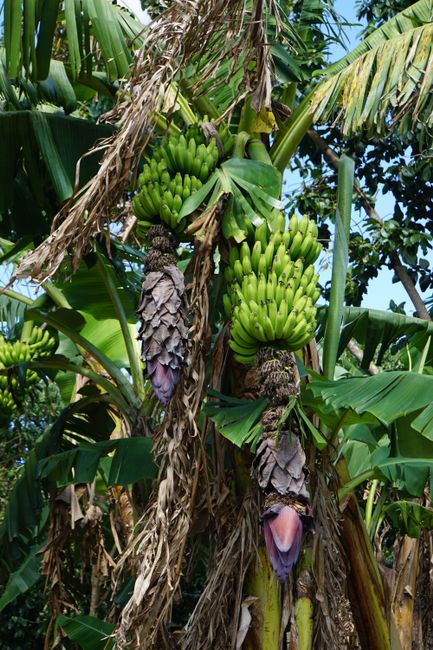
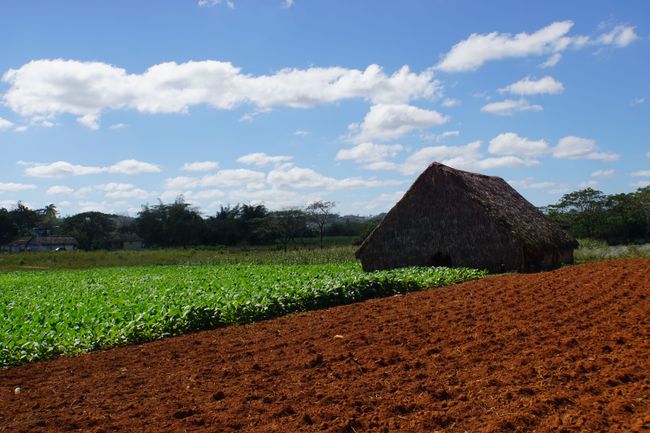
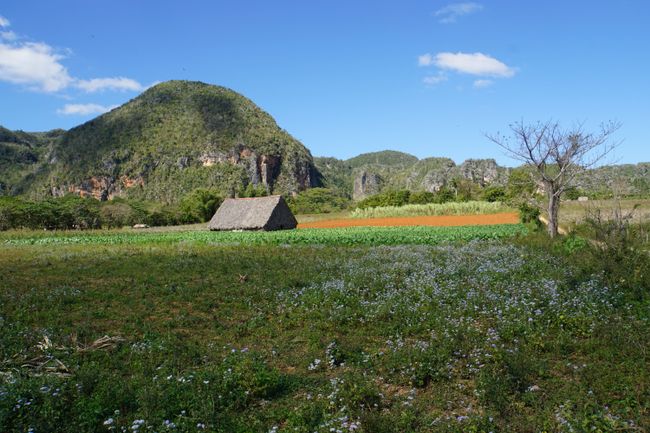
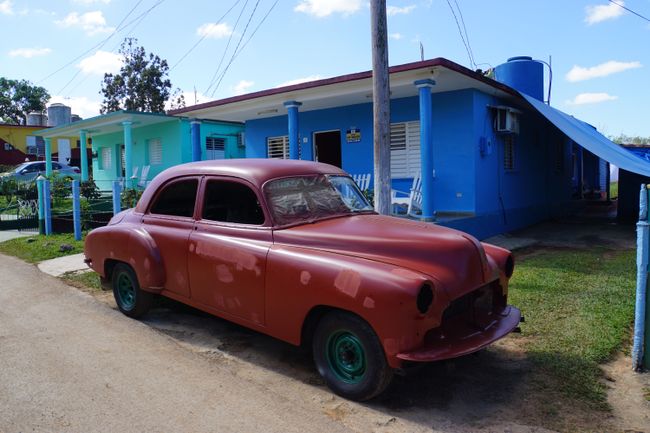
Iscriviti alla Newsletter
After my extended stay in Havana, I was excited to leave the city and go into the countryside. But I never expected Viñales to be so green!
Early in the morning, I left Havana. My host, Luis, drove me to a nearby hotel. In Cuba, there are different ways to get from A to B. However, tourists are not allowed to travel on the local buses. So I had to choose between Viazul Bus, Conectando Bus or Taxi Collectivo (a taxi with at least four people, so it's worth it for the driver). In the end, I decided to take the Conectando Bus. It stops at several hotels in the city center and picks up people, so it's relatively uncomplicated and cheap. I was also lucky that the hotel where I was waiting was one of the last stops, so we quickly got on the autopista towards Viñales. The bus ride was fine, even though the highway was made up of patched-together plates with a thousand potholes. But the bus was relatively new and I was lucky not to have a seat neighbor. I took the opportunity to sleep a little on the journey. After a 20-minute break at a tourist rest stop, I arrived at my destination, the marketplace of Viñales, after about four hours of driving.
I had already arranged a Casa Particulares in advance and walked about ten minutes to get there. My accommodation was a room in my host's house with a private bathroom. It was absolutely sufficient and super cheap at 10€ per night. But the best thing was the air conditioning, which I would come to appreciate in the next few days.
In the afternoon, I took the opportunity to explore the town and get a feel for the next few days. Viñales is a relatively small town and feels like it's made up almost entirely of colorful Casa Particulares, souvenir shops, and restaurants. Everything here revolves around tobacco. The most expensive and probably the best tobacco in the world is grown here (tobacco for the famous Cuban Cohiba cigar is grown here in the fields). The central marketplace of Viñales is the hotspot of the town, also because of its internet access. However, I also decided to explore the more remote streets, so I ended up at a hairdresser's first, and later on a tobacco farm. The tobacco was still in the fields and shone in a beautiful green color. There were also plenty of animals on the farm, and some tourists were brought there by bus. You can apparently see the process of making cigars there and even smoke some. So I pretended to be a bus tourist and sneaked around the others, taking some photos. On the bus, I learned that the tobacco farmers have to give 90% of their harvest to the state. They are allowed to keep 10% for themselves and use it to make cigars for personal use or for sale. After the farm, I continued walking and discovered a local market with several stalls. Since it was already late in the afternoon, most stalls were already closed. The butchery stall, however, was still open, and I saw how pork is cut and sold in Cuba. On my way back, I stopped at a restaurant and enjoyed a cheap, super creamy, and delicious Pina Colada thanks to happy hour. I spent the evening on the marketplace and the nearby sports field, and for dinner, I ate at one of the restaurants. They mostly offer local organic vegetables, cheese, and meat. They serve what the farmer harvested that day. Simple, but incredibly delicious!
I started the second day in Viñales with breakfast in my Casa. The aunt of my host had washed my laundry the day before and now prepared breakfast for me. But between us, it wasn't particularly tasty. The omelet was probably the best part. The guava juice and guava jam were disgustingly sweet, and the sausage was made from everything except meat. There was also only a tiny cup of coffee because it's very expensive here. Oh well, never mind! Exploring the valley on horseback is typical for Viñales. But I chose a bicycle because the last time I sat on a horse was when I was a child. After breakfast, my bike, which I had organized the day before, was delivered to the Casa. I could use it all day for about 10€. It was a slightly old mountain bike with a reasonably functioning gearshift but unfortunately without suspension. Given the road conditions here and the number of gravel roads, it was quite hard on my arms. But it worked, and that was the main thing. So I set off on a big bike ride. There were still 100 guides offering their services on the marketplace, but I politely declined and set off with my bike and an offline map on my phone.
My first stop was at a huge mural. This is supposed to be the main attraction here, and many tourists come by bus. It's called Mural de la Prehistoria and was painted by several artists on the cliff walls in the 70s, so it's not really prehistoric. I didn't find it particularly beautiful or impressive, so I just took a picture from a distance and saved myself the entrance fee. After that, I rode my bike crisscross through the Viñales Valley. The road ended after the mural, and there were only gravel paths. I was glad to have had a mountain bike. Because of the sometimes unbearable heat, I frequently looked for a shady spot under a tree. But the valley was beautiful, everything was so green, and there were tobacco, sugar cane, corn fields, and palm trees everywhere. In addition, the huge mogotes (limestone hills) rose up from the ground, creating a beautiful landscape for me. Thanks to my limited Spanish vocabulary, I also managed to have some conversations with the locals. One showed me his vegetable field, and another allowed me to take photos of him during the tobacco harvest. Everyone was very friendly and always had a smile on their face. They also greeted me politely as they passed by with a 'Hola' or 'Buenas'. There were hardly any other tourists in the valley at that time, except for a few on horseback. At some farms that are designed for tourism, cigars are offered for sale at a very reasonable price. I would love to try a cigar made from the best tobacco in the world. But since I have been smoke-free for almost a year now and want to continue that way, I always politely declined. Cigarettes are certainly not comparable to cigars, but I still want to achieve my year-long goal. For lunch, I took a long break at one of the restaurants along the way and enjoyed an ice-cold lemonade. There, I was told that it is currently winter in Cuba and July is the hottest month. At 28 degrees, I just smiled at the waiter with a sweaty face. In the early afternoon, I finally returned to my Casa after about 16 kilometers and enjoyed the cool air conditioning in my room.
In the afternoon, I set off in the other direction from the town with my bike. I saw more beautiful Casas, tobacco fields, and mogotes. But by now, my bottom and hands were pretty sore after another three kilometers, so I rode back to my Casa, parked the bike, and continued on foot. The sun was already starting to set. After another four kilometers on foot, I reached Hotel Los Jazmines, and from there, I had a beautiful panoramic view of the valley. Since I couldn't find anyone to take me back to town, I walked back. It was already dark, and I had Ropa Vieja, a Cuban national dish, for dinner at a restaurant. Spicy shredded beef with a variety of salads, fresh tomatoes, cucumbers, banana chips, and rice. After such a day, it was an absolute feast! Then I fell into bed completely exhausted.
Today, I started a little later. Since I had canceled breakfast due to the previous day's experience, I was able to sleep in. I started my tour on foot around 9:30 am. This would take me back to the valley and to one of the caves there. In the valley, similar to Vietnam, there are plenty of caves in the limestone hills. Some can only be explored by boat, and others have no lighting and require a guide. But that's not for me, so I chose a small cave that can be reached on foot and is about two kilometers outside Viñales. Once again, I passed beautiful fields with vibrant colors and reached the cave after a short climb up some stairs. The cave was really tiny, like a kind of tunnel. After about 5 minutes, I was already on the other side, and it was only pitch black for a very short time. From up there, I had a great view. On the other side of the tunnel, I climbed back down and walked along the fields for a while. There, I met another farmer who was drying coffee beans in the sun. After a short chat, I continued walking and returned to Viñales. For lunch, I treated myself to an ice-cold mojito and later sat on the marketplace to watch the arriving tourists. Now I'm back in my Casa, writing the blog and sorting through the pictures. Ultimately, the nearly 100 colorful pictures show how beautiful I found it here, and I found it really difficult to delete any of them. In the evening, I will go back to the marketplace and post the blog online.
Tomorrow, I will continue to Cienfuegos with the next Conectando Bus. Cienfuegos is an old city known for its colonial buildings. I have a seven-hour journey ahead of me, but I'm already curious to see what awaits me there.
Iscriviti alla Newsletter
Risposta
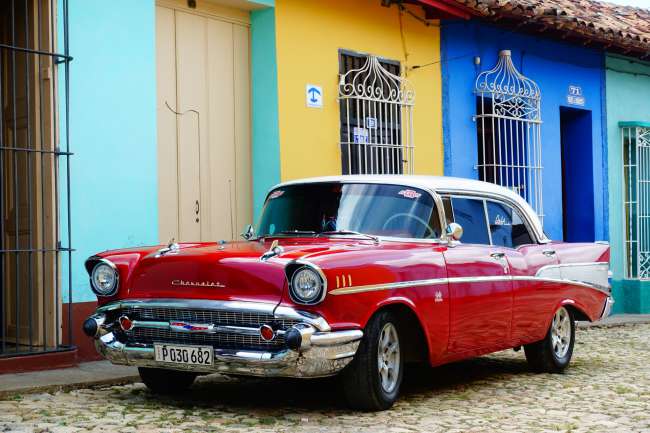
Rapporti di viaggio Cuba

